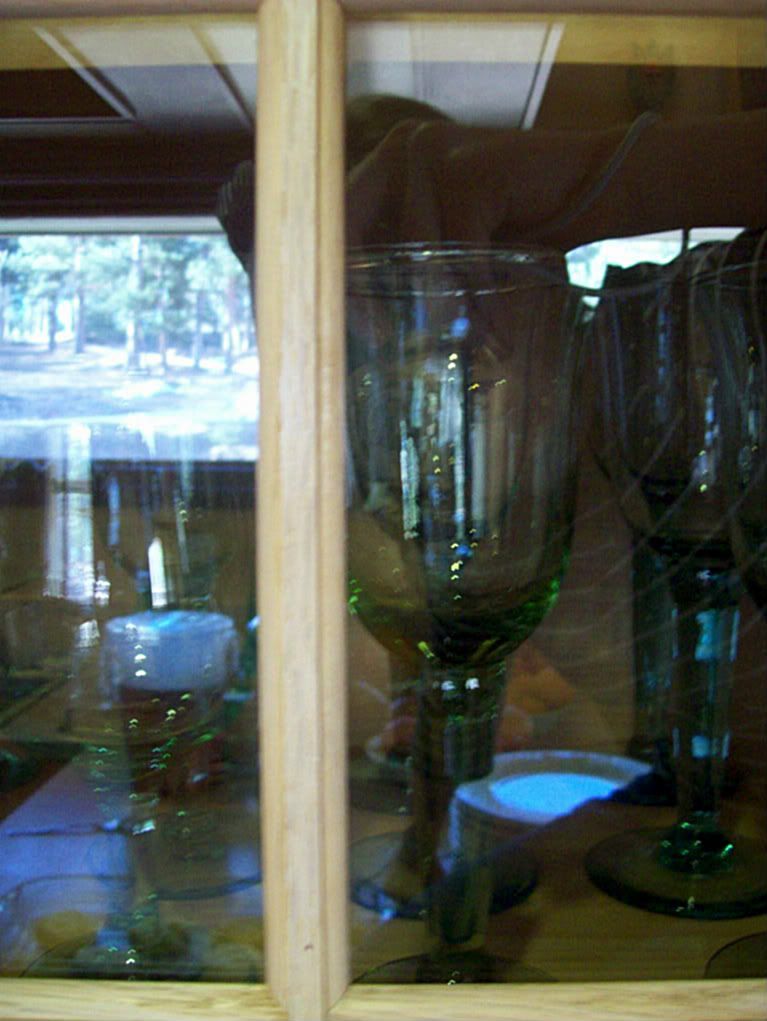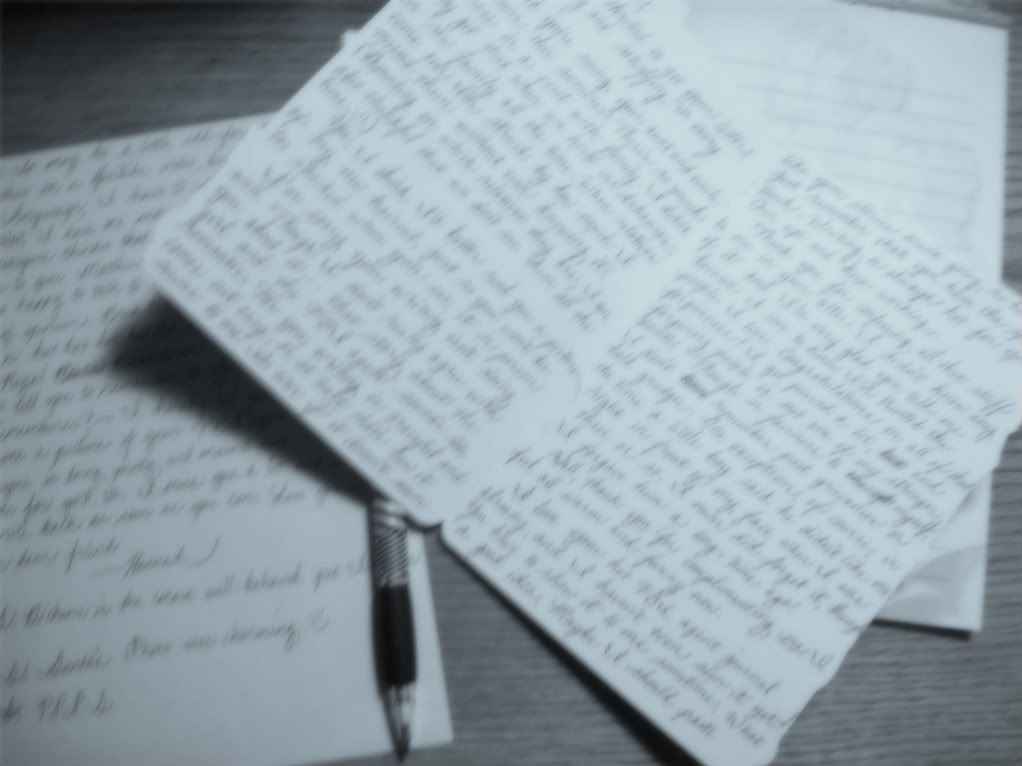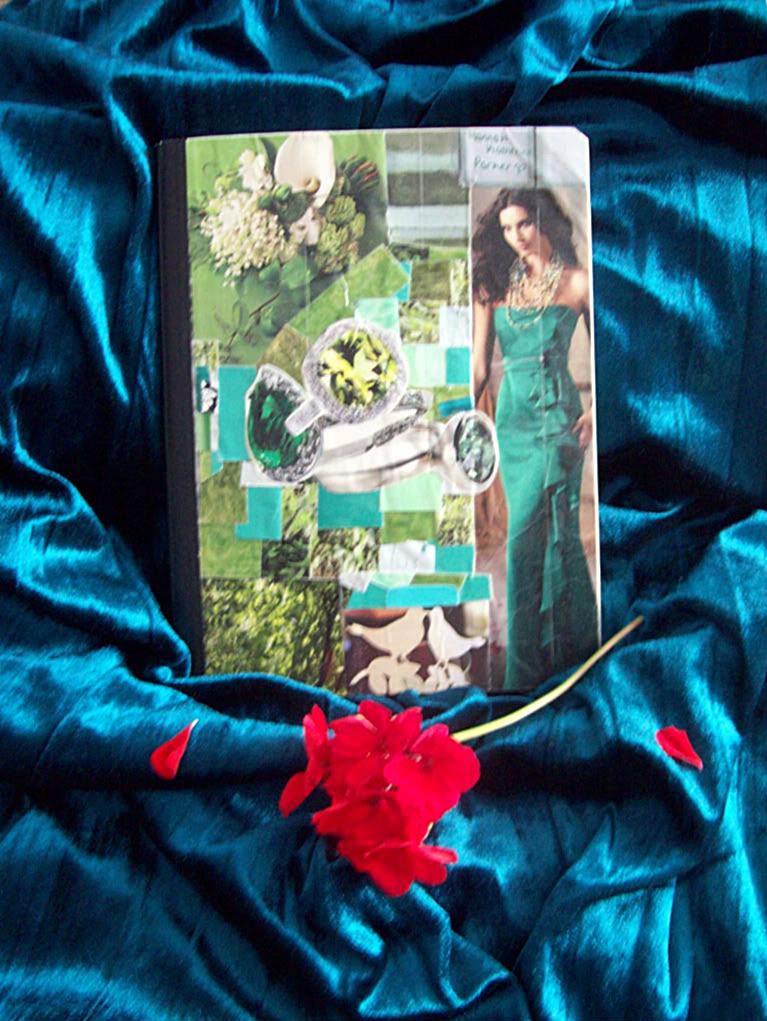.
This is the humble Polk County Library in Mena, Arkansas. I visited this library about once a week from ages five to eleven, and I'll never forget it. It's been a long time since I saw it, and in this photograph it's rather more attractive than I remember. But I daresay it was taken after they made things all nice following the tornado that knocked down the back quarter.
This picture brings back dusty, blue-carpeted, tattered-bookish memories that have been stored in the back of my mind until the time when they would be needed . . . like now. It's impossible to convey the pull that the place has on my heart. This was where I tapped the blue-painted iron pillars in the middle of the adult section to hear the
ponging sound; where I perused the rows of yellowing chapter books with The Right Honorable L.R.K.; where I admired the petrified gingerbread house that the librarians set out every year since about 1970. This is where my true education was begun; where I laid the foundation of my mind with dear old books like
The Nickel Plated Beauty by Patricia Beatty,
Under the Lilacs by Louisa May Alcott, the original Nancy Drew mysteries,
Five Dolls and Their Friends by Helen Clare, The Four-
Story Mistake by Elisabeth Enright, the Mary Poppins books by P.L. Travers,
The Five Children and It by E. Nesbit,
By the Great Horn Spoon by Sid Fleischman, and
Alice in Wonderland by Lewis Carrol.
Many of these books are all but forgotten. When I lived there, that library hadn't been updated since about 1950, and even then not very thoroughly. I am profoundly thankful for it. I grew up reading faded, out-of-print books that no one had checked out for forty years or so, filling my heart with dear visions of girls in lace perched on windowseats; of surreys gliding over ruddy cobblestones; of homemade cakes and glass lamps and crackling fires and apple trees; old cities, American or British, with great brick buildings looming over streetlamped streets; of pioneers trudging across the plains; of women standing on the platform of the train station, waving as their soldier lovers headed off to the war; of children snowball-fighting in the midst of New England snowdrifts; of two-storied houses and the ladies who lived there; of handsome men with brass-headed canes, top hats, and mystery in the eyes twinkling above their mustaches.
The books listed above are just the ones I can remember. There were so many others, and since I'm sure that library has finally gotten rid of all the old out-of-print friends I read and read again, I know the precious tales hovering at the edge of my memory are lost to me forever. But I still love them, and that's what counts.
I have been intimately acquainted with five libraries since then, but that forgotten little library in that forgotten little town is by far my favorite. In the five years that have passed since we moved, my family and I have only visited it once. I hope to see it again someday . . . though I daresay they will have remodeled and other depressing things like that. However: a library is a library; and that library will always be
the library.
Librarians . . . where do I start?
To be a librarian is one of the greatest callings in life. Good librarians maintain the equilibrium of the universe. A bad librarian . . . well, you know the type. You know the withered feeling you get when the old bat glares at you over the tops of her wire-rimmed readers, making you feel like a bottom-dwelling, unwashed, uneducated, imbecilic teenager who doesn't deserve to be sullying her precious books.
Librarians are in a position of a great power, and I have known many who have abused it. I'll never forget feeling like a whipped dog as the librarian-on-the-dark-side working at the tiny library up the mountain lasered me with her aged, bloodshot eyeballs, saying, "you
do know you have some
books checked out, don't you?"
" . . . uh . . . yeah . . . ," I quavered.
"Well, I'm renewing them all," she said pointedly. I knew what she was thinking. "
Better get them back on time, stupid teenage brat. Or I'll steal to your house in the dead of night and bite your neck."
Well, I didn't get them back when they were due. By the grace of God I still don't have any fang-marks. But it's only a matter of time.
The subject of wicked librarians chills me, and it doesn't do to dwell upon it overmuch. So now I shall reminisce about the great librarians I have known.
I clearly remember three special librarians who worked at the Mena library. Shirley was the finest ever. Her merits included: a) a pair of spectacles which she perched on her nose when she looked at the computer. They had little chains on them! b) she let us check out as many of the dusty, tattered books as we could manage, even though the "limit" was supposedly ten. c) She had red bobbed hair and capable, slightly wrinkled hands like my mother's.
Everybody loved Shirley. Her droopy, lovely eyes always had little smears of blue eyeliner around them, and she had never used them to glare at anyone in her life. She was always kind to children. She loved obscure, sweet novels such as
Daddy-Long-Legs by Jean Webster, and she would spend forever talking with Mother about them because they were both enchanted by the same books. For years, when the phone at the front desk rang, she would pick it up and answer, "Lahberry" in her softest of Southern drawls. I consider Shirley the beatific queen mother of all librarians; immortal, unchanging, (except when I saw her on that vacation a couple of years ago: her hair was almost completely gray) a symbol forever fixed in our minds of grace and sanctified librarianness.
She had two accomplices at that library, and I was very fond of them both. Dorothy was a very pretty old lady; she had a way of looking old without actually looking old (I'd like to know what her secret was), with soft white hair, an elegant, sculpted face, a collected smile, and delicate spectacles, which to my memory she never removed. She was endlessly dignified and wholly pleasant.
Bill was another old person who didn't really seem old. I believe he was only at the library during certain days of the week, but my memory is a little hazy in that direction. He was so tall and thin that he reminded me of a stork with white hair combed over its balding head. He had the quietest voice, which never raised in tone or volume, and an Eastern accent. I have heard people say that the Easterners speak too harshly, but I personally think it depends on the Easterner, because he made it sound so graceful; the most natural way to speak in the world. He had a long, narrow face, an unshakable contented expression, and a truly dreadful wardrobe of things he'd had since the eighties. I loved the way he said "wuhsome" instead of "awesome".
This trio of librarians reigned with justice over their kingdom, with happiness only slightly marred by the large-boned, beady-eyed lady librarian who appeared in later years to torment defenseless little girls over their book count.
I don't know if Shirley, Dorothy, and Bill work there still, but it wouldn't surprise me. A librarian is, above all, faithful.
 Very well. I will admit that this photograph, even for an amateur photographer, is pretty pathetic. But taking pictures in a kitchen means that the choices for orientation are extremely limited. (In other words, I didn't want you all to see the mulch of spattered cookbooks and wayward telephones beneath and around the cabinet.)
Very well. I will admit that this photograph, even for an amateur photographer, is pretty pathetic. But taking pictures in a kitchen means that the choices for orientation are extremely limited. (In other words, I didn't want you all to see the mulch of spattered cookbooks and wayward telephones beneath and around the cabinet.)










%5B1%5D.jpg)












